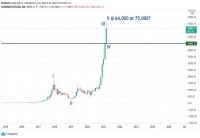|
By: Bailey McCann, Private Equity Strategies Private Equity is often considered one of those industries in which jobs are best learned by doing, rather than by sitting in a classroom. However, nearly all of the world's top-tier business schools offer at least a few classes in private equity, if not a more formal curriculum track that students can pursue. These same schools have also been working to provide academic research on the industry although historically, private equity academic research has lagged other financial fields. Now, that may start to change as firms are required to register with regulators and investors demand more transparency. Taken together, these demands may also lead to more and better data for academia. "Barriers to data have been a major issue all along," says Professor Josh Lerner, Jacob H. Schiff Professor of Investment Banking at Harvard Business School. He notes that prior to registration requirements, general partners were loath to offer up data to anyone, including impartial researchers. Professors, Eli Talmor, Florin Vasvari of the London School of Business and authors of the key textbook on the industry, International Private Equity, agree. In interviews with Private Equity Strategies, all of the men note that while business schools can teach around a lack of data, it hampers the production of papers and the growth of academic understanding of the field. Talmor points to recent developments in the private sector, with companies like Preqin or Thompson Reuters developing large data banks as bright spots on the horizon for data starved researchers. "Also, the emergence of research institutions such as the Coller Institute helps to promote and financially support research. But, GPs are generally not transparent. Fund of funds have been more open in sharing their datasets on an anonymized basis," Talmor says. In the US, Lerner, the author of three books himself (The Venture Capital Cycle, The Money of Invention, and Boulevard of Broken Dreams) also backs the Private Capital Research Institute which is working to provide academic work in the field. "The question is whether PCRI or other efforts take off, or if we can create some sort of a standard database. Often the data we can get now, where it is available isn't clean, so we have to spend time on that before we can begin to draw conclusions," he says. Right now, research is largely focused on the data points most readily available - performance, and factors that create this performance. However, Talmor says more work is needed on issues such as how private equity funds generate value, the impact of investing in private equity, and what risk management really looks like in the field. Despite the lag in research, all of the professors note that the level of student interest in private equity remains strong. "Many students are now avoiding careers in banking and are more interested in entrepreneurial paths," Talmor says. "Private equity fits in as providing the glamor and clout of institutional finance with the excitement and innovation of entrepreneurship. Our classes at LBS are oversubscribed." Harvard also offers a yearlong program in private equity, which has evolved since Professor Lerner introduced his first class on the subject in 1993. Yet, the path out of school and into private equity may be challenging for students who are not already connected to a firm. Talmor notes that recent graduates may have a hard time connecting with funds, especially smaller funds and that the overall lack of attrition in the industry can make competition steep. For those with less experience they may consider junior analyst positions or getting involved with private equity in other ways to build out their skill set. Working on a turnaround or selling a company to a private equity firm can add to an individual's background, but developing connections and finding ways to stand out are critical. "There are many paths into private equity. Prior experience makes a difference," Talmor says. | |
|
This article was published in Opalesque's Private Equity Strategies our monthly research update on the global private equity landscape including all sectors and market caps.
|
Private Equity Strategies
The Next Generation: Private Equity in The Classroom |
|





 RSS
RSS










